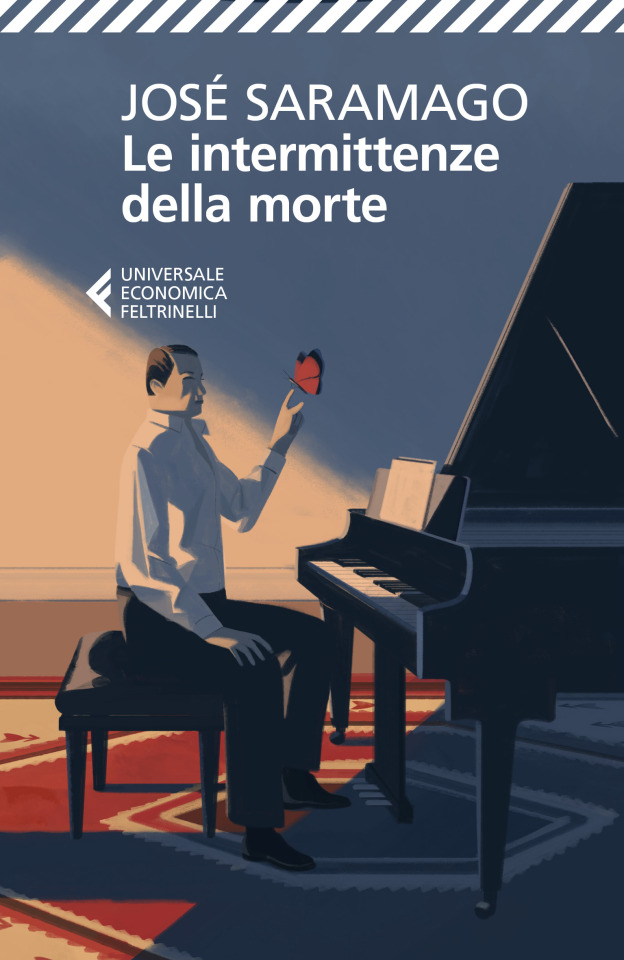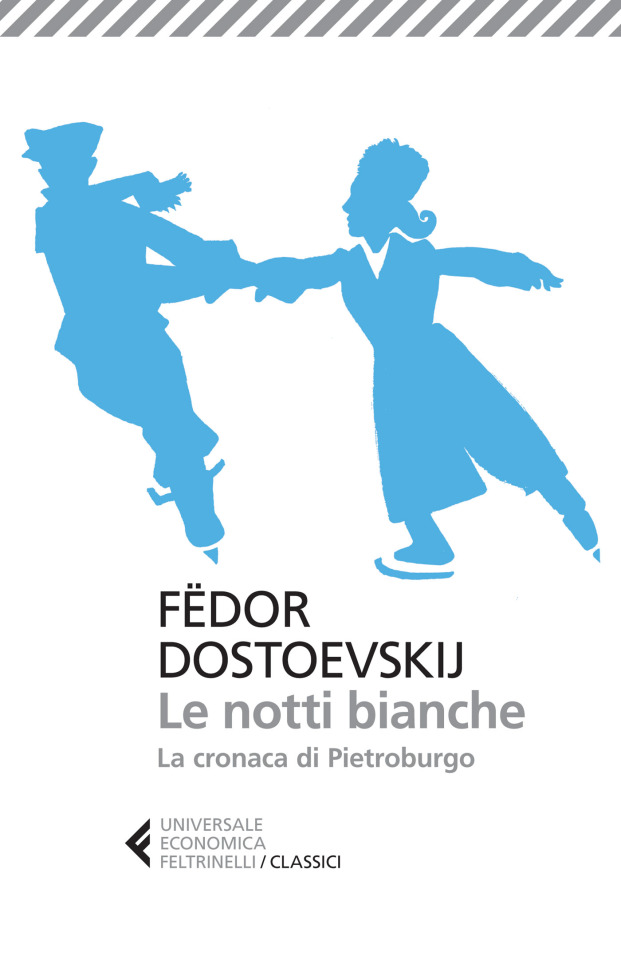#Dostoevskij
Text
Undoubtedly the worst thing about Fyodor Pavlovich is that there is absolutely nothing which he holds as sacred, holy, untouchable, worthy of reverence or respect. Everything is a joke to him.
The very worst way this is exemplified is his alleged (but come on, we all know it was him) crime against the “holy fool” Lizaveta Smerdyashchaya, which for him was yet another distasteful joke. Lizaveta’s innocence and vulnerability are recognised by the community of Skotoprigonyevsk, both young and old, and we are given paragraphs and paragraphs to show how she is widely adored by the townspeople and how attempts are made to shelter, protect, and care for her.
When Fyodor Pavlovich violates her, he violates something that the community holds as sacred.
That, to me, is the core difference between someone like him and someone like Mitya. Even though Mitya has done a lot of “dirty things” and may on the surface appear to be following in his father’s footsteps, his heart is a noble one, or at least one with noble intentions. One that is filled with reverence and genuine emotion and a hatred for what is abhorrent—even when he himself is doing things that are abhorrent.
And even though we can fully understand his hatred of his father for his loathsomely mocking, irreverent, dishonourable, ignoble attitude toward everything, once his father is dead, he still feels sorry for that hatred. He still regrets the relationship he never had with the father who neglected him as a child and possibly swindled him as a young man. That alone speaks to the kind of heart that he has.
“It is a noble man you are speaking with, a most noble person; above all—do not lose sight of this—a man who has done a world of mean things, but who always was and remained a most noble person, as a person, inside, in his depths, well, in short, I don't know how to say it ... This is precisely what has tormented me all my life, that I thirsted for nobility, that I was, so to speak, a sufferer for nobility, seeking it with a lantern, Diogenes’ lantern, and meanwhile all my life I've been doing only dirty things, as we all do, gentlemen ... I mean, me alone, gentlemen, not all but me alone, I made a mistake, me alone, alone ... ! Gentlemen, my head aches,” he winced with pain. “You see, gentlemen, I did not like his appearance, it was somehow dishonorable, boastful, trampling on all that's holy, mockery and unbelief, loathsome, loathsome! But now that he's dead, I think differently.”
“How differently?”
“Not differently, but I'm sorry I hated him so much.”
“You feel repentant?”
“No, not really repentant, don't write that down. I'm not good myself, gentlemen, that's the thing, I'm not so beautiful myself, and therefore I had no right to consider him repulsive, that's the thing. Perhaps you can write that down.”
- The Brothers Karamazov, 3.9.3 (Pevear & Volokhonsky translation)
There is no beauty to be found in anything about Fyodor Pavlovich, and though Mitya contests that the same is true of himself, I argue differently. There is something beautiful in the struggle of an imperfect human toward nobility, despite being doomed to always fall short. To again and again slip into one’s baser impulses, and yet again and again stand back up and trudge onwards.
Both are human, but Fyodor Pavlovich is all of the very worst things about humanity, while Mitya is the worst things mingled with much of the very best.
#musings#the brothers karamazov#cw rape#tbk#fyodor pavlovich karamazov#dmitri karamazov#mitya karamazov#lizaveta smerdyashchaya#fyodor dostoevsky#братья карамазовы#tbk meta#brothers karamazov#russian lit#classic lit#classic literature#literary analysis#dostoevskij#dostoevsky#dostoyevsky#fedor dostoevskij#fyodor dostoyevsky#dmitri fyodorovich karamazov#fyodor pavlovich#analysis#literature#russian literature
22 notes
·
View notes
Text
«Il sognatore è sempre difficile da sopportare, perché è instabile fino al limite estremo: ora è troppo allegro, ora invece troppo incupito, ora è villano, ora pieno d'affetto e premure, ora egoista, ora capace di sentimenti nobilissimi.»
- Fëdor Dostoevskij, La cronaca di Pietroburgo
#fedor dostoevskij#dostoevskij#libri#citazioni#libridaleggere#letteratura#notti bianche#i fratelli karamazov#poesie
153 notes
·
View notes
Text
La cosa migliore sarebbe di non recitare nessuna parte, ma di mostrare il proprio volto, non è vero? non c’è maggiore astuzia che di mostrare il proprio volto, perché nessuno ci crede.
Fedor Dostoevskij
26 notes
·
View notes
Text
In my Raskolnikov era (broke, sick and delusional)
28 notes
·
View notes
Text
Colui che genera un figlio non è ancora un padre, un padre è colui che genera un figlio e se ne rende degno.
Fedor Dostoevskij
•
Auguri a tutti i Papà, quelli veri però.
80 notes
·
View notes
Text
Auguri!
Non vi auguro molta felicità: vi verrebbe a noia; non vi auguro nemmeno del male; ma, secondo la filosofia popolare, ripeto semplicemente: «Vivete molto» e cercate in qualche maniera di non annoiarvi troppo.
F. Dostoevskij, [Бесы - Besy, 1871], I demonî, Torino, Einaudi, 2014 [Trad. A. Polledro]
94 notes
·
View notes
Text

fydor dostoevsky, the adolescent
[text ID: never mind a little dirt, if the goal is splendid! afterwards it will all be washed away, smoothed over. and now it’s only―breadth, it’s only―life, it’s only―life’s truth―that’s what they call it now!]
#self care is reading russian classics#the adolescent#fydor dostoevsky#fydorova#dostoyevsky in the sheets#fyodor dostoevsky#dostoevksy#dostoevskij#fedor dostoevskij#writers on tumblr#writers community#connecting with readers#russian literature#russian#russia#classical literature#classic books#classics#i’m reading#i'm reading it right now#books and reading#read in 2023#currently reading#the mood for today#motivatingwords#motivating quotes#motivation#mindset#achieve your goals#almost finished
50 notes
·
View notes
Text
impegni
-E non me lo rinfaccerai mai?
-Non lo rinfaccerò.
-Eh, via, bada, non prendere impegni per tutta la vita!
da F. Dostoevskij, L'idiota
#citazioni#dostoevskij#fedor dostoevskij#idiota#principe myskin#nastasja filippovna#impegni#rinfacciare
12 notes
·
View notes
Text
Signori, mi tormentano dei problemi; risolveteli per me. Per esempio volete far perdere all’uomo le sue vecchie abitudini e correggere la sua volontà, in conformità alle esigenze della scienza e del buon senso. Ma come fate a sapere che l’uomo non soltanto possa, ma debba essere trasformato così? Da che cosa evincete che sia così necessario correggere la volontà umana? […] Ammettiamo pure che sia una legge della logica, ma forse non è affatto una legge dell’umanità. Pensate che io sia folle? Permettete di spiegarmi. Ne convengo: l’uomo è un animale essenzialmente creatore, condannato a tendere coscientemente all’obiettivo e a praticare l’arte dell’ingegneria, cioè a tracciare una strada eternamente, non importa verso quale direzione. Ma vuole ogni tanto svicolare via, forse perché è condannato a tracciare quella strada, e anche perché, per quanto stupido sia in generale l’uomo immediato, l’uomo d’azione, gli accade tuttavia di pensare che la strada conduce non importa dove, e che l’essenziale non sia la sua direzione, ma soltanto la sua esistenza; e che un figlio accorto, disdegnando l’arte dell’ingegneria, non si abbandoni a un ozio funesto, il quale, come si sa, è il padre di tutti i vizi. All’uomo piace costruire e tracciare le strade, è indubbio. Ma com’è che gli piace anche appassionatamente la distruzione e il caos? Ditemelo! Ma a tal proposito voglio dire ulteriori due parole anch’io. Se ama tanto la distruzione e il caos (poiché è indubbio che talvolta gli piaccia molto) non sarà perché teme istintivamente di raggiungere il fine e di completare l’edificio che ha cominciato? Che cosa potete saperne? Forse quell’edificio gli piace solo da lontano e non da vicino; forse gli piace soltanto costruirlo e non viverci: e preferisce assegnarlo agli animali domestici, come le formiche, i montoni, e via dicendo
Dostoevskij
9 notes
·
View notes
Text
Non dico che fossimo perversi; tutti quei giovani in fondo erano buoni, ma si comportavano in maniera abominevole, e io peggio di tutti (Fëdor Michajlovic Dostoevskij, I fratelli Karamazov).
27 notes
·
View notes
Text
La gente spesso parla di crudeltà “bestiale” dell’uomo, ma questo è terribilmente ingiusto e offensivo per le bestie: un animale non potrebbe mai essere crudele quanto un uomo, crudele in maniera così artistica e creativa.
#crudeltà#Fëdor Michajlovič Dostoevskij#pensieri#riflessioni#citazioni#citazione#letteratura#letteratura russa#Fëdor Dostoevskij#fedor dostoevskij#dostoevskij
5 notes
·
View notes
Text
Mi tormentava allora un’altra circostanza, il fatto che nessuno mi somigliava e io non somigliavo a nessuno. Io sono solo, e loro sono tutti.
- Fedor Dostoevskij, Memorie dal sottosuolo
44 notes
·
View notes
Text
I am looking forward to summer but gosh I need winter so I can re-read the karamazov brothers......
3 notes
·
View notes
Text
13 Moons Reading Challenge 2024
Snow Moon
Update of this moon's prompts of @readnburied reading challenge!
Reading goal for now — Partial Lunar Eclipse: 26 books
The word White in the title: White Nights (Le notti bianche), by Fëdor Dostoevskij. ☆☆☆☆
I loved it. The day I finished this book, I cried. It was a couple of days ago, at the end of a particularly tiring day. I haven't been in a nice place lately, mentally speaking, and in the last few days I felt it all way too much. I related to the main character in a twisted but profound way - and yes I'm aware of all the motives that make this book "old", nonetheless, I couldn't help it. In my way of thinking, if a book moves something inside of me, it's just a really good book. I regret to inform y'all that this'll go straight to my faves (just like every Dostoevskij's book I've read, I see a pattern).
Read a book while drinking a hot beverage/read a book while burning a candle: Death with Interruptions (Le intermittenze della morte), by José Saramago. ☆☆☆☆
This book was so easy to read and so enterteining. It offers a lot of food for thought, without being too complex ever. I liked the humor of the author so much, it makes everything lighter than it seems. I was afraid it got too weird at some point, but in the end it didn't, so I really liked the ending. A light but reflective reading, with some really poetic moments. Recommended!
I'll leave here the Italian covers, since I've read these two in italian.


#13 Moons Reading Challenge 2024#13 Moons Reading Challenge#reading challenge#reading challenge 2024#books#reading#bookblr#josé saramago#death with interruptions#white nights#dostoevskij#saramago
2 notes
·
View notes
Text
"Io sono solo, e loro invece sono tutti."
Fedor Dostoevsky - Memorie dal sottosuolo
6 notes
·
View notes
